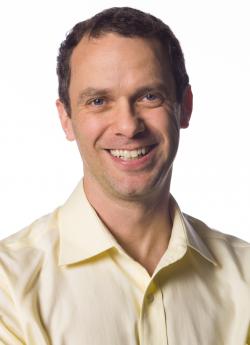Jay Whitacre, Ph.D.
Elia Development Chair Professor, Materials Science & Engineering and Engineering & Public Policy
Dr. Whitacre has always been interested in energy research and systems engineering, but he was limited to interplanetary robotic spacecraft at the Jet Propulsion Laboratory. This is partially why he transitioned to Carnegie Mellon University. Although he learned many skills at JPL, Dr. Whitacre was ready to operate more independently. Indeed, once he joined CMU, he embraced his intellectual freedom and founded the energy storage company Aquion Energy. Since this successful venture began, he has focused on energy systems performance and the associated techno-economic impact of those systems. Thus, he analyzes emissions, efficiency, and the levelized costs of energy, all of which drive research in the material science engineering field. Understanding these key market drivers is important in the energy sector.
Dr. Whitacre is involved in both the Material Science and Engineering department and the Engineering and Public Policy department at CMU. This allows him to apply a cross-disciplinary approach in his research and in the classroom. As a professor, Dr. Whitacre is rewarded by working with the students at CMU, teaching classes, and being involved with the EST&P program. He has found that the CMU students are engaged in their studies, genuinely want to learn, and embrace hard work. He is proud that CMU students are able to put knowledge and accuracy above their egos. Dr. Whitacre teaches the core Energy Policy and Economics class, and one purpose of this course is to add a societal context to the program’s learning objectives. There are weekly essays assigned as homework in this course—the purpose of these essays is to teach engineering students how to effectively communicate and how to think holistically.
We at the EST&P program would like to congratulate Dr. Whitacre on achieving tenure this year! During his time at CMU, Dr. Whitacre has learned how to teach in an impactful way; he truly enjoys teaching and, in his own words, “it’s stimulating but also super draining.” Advice that Dr. Whitacre would give is to be determined but, most importantly, for students to learn how they learn because this unique process is what allows them to aggregate new information and ideas. He advocates how important it is to learn how to synthesize new information rather than memorizing specific facts. In his own research, Dr. Whitacre applies systems thinking.
Interviewed by: Evelyn Fairman ('15)

